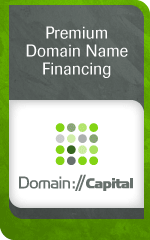|
Editor's
Introduction: Castello
Cities Internet Network (CCIN) CEO,
President and Co-Founder Michael Castello, has
been actively involved in computer technology since
1986 and the Internet ever since the World Wide Web
became publicly available in 1991. Since then he has
become one of the most successful domain
investor/developers in industry history.
In 2006 we published what remains one of our most
popular Cover Stories ever, a profile
of Michael and his brother, fellow CCIN Co-Founder, David
Castello (CCIN has developed many successful
websites including PalmSprings.com,
Nashville.com and Daycare.com to name just
a few). In another Cover
Story in 2014, Michael gave us an
exclusive inside look at how one of his biggest sales
- Whisky.com at $3.1 million - was put
together.
This
year, in January 2020, while putting our annual State
of the Industry Cover Story together, I
asked Michael for his thoughts on the prospects for
the domain industry in the new year ahead. He has
always been a visionary, so I was not surprised when
he came back with a much bigger picture view of
the environment we are currently operating in and the increasingly
strong headwinds that will have to be overcome if
the success the industry has had in the past is to be
maintained. It was immediately obvious to us that the entirety
of what he wrote should be shared, so we decided to publish an excerpt from it in the State of the
Industry report (where space was more limited since it
included commentary for nearly two dozen industry
experts) then follow that up with this separate article
devoted
entirely to what Michael had on his mind. We are happy to share
it with now, entirely in
Michael's own words:
|
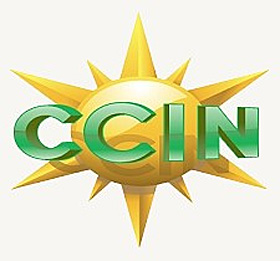

Michael
Castello, CEO & President
Castello Cities Internet Network
|
|
While
I feel I am a positive, optimistic person, I
don’t really have a lot of positive things to say
about the situation this industry is in -- much less any
other striving industry that is struggling against
repressive institutions and corporations that are now
almost trillion dollar mega-titans of capitalism.
I’m not blaming those of us that make up the
majority of this industry. It’s not our fault. I am
laying the blame on those that believe their
sacrosanct position of authority is above reproach.
Simply put, most are gaming the system -- those
who leverage their positions to form an alliance or
cabal outside of their consecrated roles to ensure
their survival at the expense of others and our
industry.
How did these entities get to the point where there
were no repercussions? I see those that are in
positions of power leave their posts to gain lucrative
positions with companies that they were trusted to
protect us from. That is gaming the system. Profit in
pursuit of happiness is a cornerstone of this country,
but to sell or sacrifice an entrusted position for
personal profit leaves us morally bankrupt and
weakens the bonds that hold us together. Distrust
ensues and attacks abound.
|
The
sale
of the .org registry last year,
one of the legacy extensions, to a private
equity firm is a good example. Many non-profit
organizations built their charities over many
years to engender trust within the .org
sphere. How can ICANN,
a “non-profit organization”, allow the
.org universe to fall under private control
with no true security for its protection into
the future? What made the legacy extensions
were the people. Now, these people have
no rights to their virtual futures. This is
akin to allowing the House of Representatives
to fall under the control of a company like Amazon.
What is next -- .net to Apple,
.com to Google? Once that happens,
our hope of individual freedoms in the virtual
world will be all but gone. |
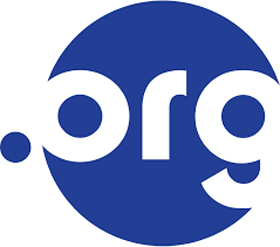
|
|
|
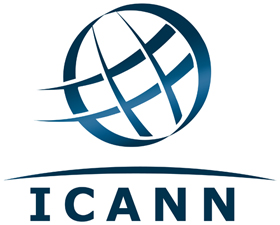
|
The
core of ICANN’s legitimacy and purpose lies
in the legacy extensions of .com, .net,
.org, .edu, .mil, .gov, and the country
code domains (ccTLDs) that helped
people create the original web. That should be
its bedrock, its foundation. The growth of
ICANN came by the commercialization of its new
extensions which helped it expand, make money
and become a top-down commercial entity. But
that conflicts with its original mandate
to protect its most basic users as a
non-profit, bottom-up, consensus-driven
multi-stakeholder governed organization. Now,
it is neither governed nor non-profit,
which begs the question-- does |
|
the
Internet again require the America government
as oversight until a new universal Bill of
Rights is created by the international
community which encompassing the realities of
virtual tangible and intangibles? The
powerful have become too powerful, the
multitudes are suffering. |
It
is now 2020, and its hell out there right now in
cyberspace. I’ve been active in computing and on the
internet since 1986. The Internet, which was
once considered a “fad” by most companies in the
90’s, is now dominated by those same corporations
who realized we possessed the same advantage of global
distribution that allowed them previously to dominate
for decades. What is common in many of these monopolies
is their ability, with no oversight, to dominate
an industry and the public. Companies, by
design, are allowed eased taxation with shareholder
expectations to grow and reap incredible profits year
after year. The stock market it a testament to how
well they are doing.
The Internet gave everyone the ability to
distribute globally -- but in doing so, everyone
became a threat to these brand companies. In the
past, building a store like Sears anywhere
would have been hampered by logistics. It would be
cost-effective to put a large store in a large
metropolitan area, but a location in a small town of a
thousand people would not be feasible. From that
restriction, small mom-and-pop shops etched out a
niche for themselves by providing goods and services
in those towns and villages. It’s what made a
culture of Americana that was loved and revered
as unique to every corner of our country. So how did
they go about gaining that control again? They created
their own platforms -- which they gave to us for free,
but at a cost. In my opinion, that cost has
been huge.
|
How
are “you” doing with your small business,
start-up, or new idea? It is fun starting
something that you have great expectations
for. I’ve been doing the same thing for a
couple decades, but I realize that it is now almost
impossible to run a new website and make a
“living” from it year after year. The huge
companies that are in control are now crushing
our potential to succeed, much less
survive. If they see a money stream in your
vertical, they will claim it for themselves
and leave you very little. |

Image
from Bigstock |
During
the Industrial Revolution more than two
centuries ago, most Americans saw that Oil, Railroad,
Steel, and Banking developed by Rockefeller, Vanderbilt,
Carnegie, and Chase Morgan would create
a more advanced country -- and it did. But at a
certain point, they accumulated so much wealth and
power that they became a detriment to the
country and a government prone to corruption.
That kind of wealth has its own gravity, which can
undermine the integrity of our Constitution and the
Bill of Rights, and the majority of people will suffer
under it. History has once again repeated itself. But
in that lies the solution and a government, which has
the best interests of its people in mind, must act.
I’ll name them now: Apple, Google, AT&T,
Amazon, and Facebook. In my opinion,
what we have in 2020 is a “hostile takeover” of
the Internet by corporate entities. They also
manipulate the government, who is supposed to protect
us and the small businesses that make up the
middle-class. The middle-class is where the government
gets most of its revenue. While the government views
the immediate returns and growth in the stock market
as positive, the rest of the country is economically
suffering. These five tech companies are worth close
to $4 trillion combined. What does that do to
the economy, much less the middle-class? That $4
trillion would equate to an extra 800 new businesses
in every state, and each would be worth $100
million. That is where the money is going and
there is not a single knowledgeable effort in Congress
to stop it. Our government sees the economic vitality
of America in its corporate Stock Market, no longer in
the middle-class. Not all Americans are in the stock
market or have a 401k to benefit from it. If we think,
“that’s their problem, not mine”, then the
experiment called America will eventually come apart
from its Union. It will be the same outcome in our
industry if we do not work toward its survival.
|
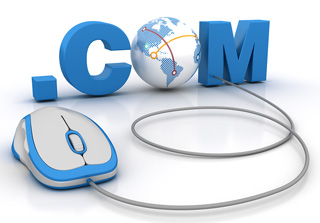
Image
from Bigstock |
In
no way do I want to diminish what many of you
are trying to achieve in your success for the
future. What I can do is give you a factual
view of what is transpiring in small
businesses and homes today.
I will do fine. I own a portfolio that was
created back in the 90s for pennies, with the
kind of single word .com domain names
that I can easily sell. I make money from
several businesses I’ve built on top of some
of these great addresses, like Nashville.com
and Daycare.com. Our selling Rate.com
was a boon not only for the buyer’s
rebranding from |
| GuaranteedRate.com,
but also the furthering of our industry to
show how important a great domain name is to a
company that needs it. |
But
all websites must acquiesce to what Google requires
in order to be relevantly indexed on their search
platform. Their yearly algorithmic changes can put
many small businesses out of business. If you
are not mobile-ready, don’t use Google Analytics, or
don’t have HTTP/SSL, too bad. Everyone must abide
by their rules or be punished on their rankings. That
is not freedom -- it is submission.
I believe that most see, as I do, the great
potential of the web. Our ability to grow as an
industry will not get any better if these companies
continue to control the flow of internet traffic. A
great domain name with the distributional power of the
internet should be a no-brainer for success. What
these monopolies have done over the last 10 years is
mask the internet, and thus make us a third-party
to it. Domain names counter that logic and
allow the freedom to connect peer-to-peer with direct
navigation.
There is a lot to be done to the current status of
these trillion-dollar companies before we have a
chance to create our own virtual universe to prosper
within. In the meantime, we must wait this period out
and focus our efforts on the health and love of the
domain industry, with hope that our leadership
will push an effort to establish an Internet Bill
of Rights that all countries can unite around.
This will benefit all people with a balanced,
equitable stake in the internet in which we thrive.
|


